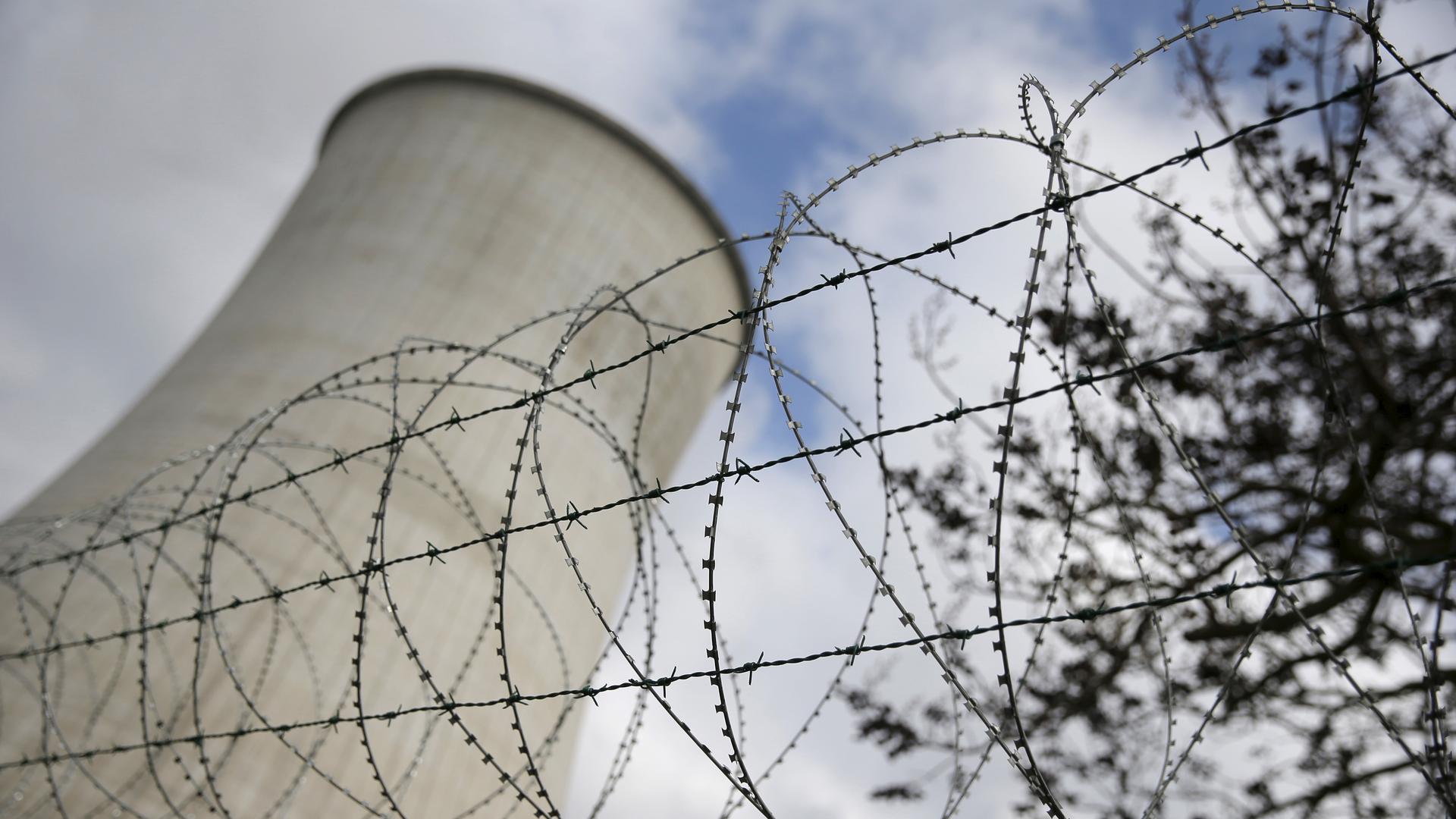Is the risk of nuclear terror on the rise?
Barbed wire guarding the entrance to a nuclear power station in Belgium.
When Barack Obama became president, he called on the world to step up efforts to safeguard nuclear materials.
The goal was to reduce the risk of nuclear weapons and radioactive material getting into the hands of terrorists and rogue nations.
The nuclear security issue became a quiet centerpiece of his administration's security strategy.
But how well has he done?
At an international summit in Washington DC, Obama said the world has "measurably reduced" the risk from nuclear weapons but the threat continues to exist. He trumpeted the deal with Iran and the fact that over 100 nations have signed a new treaty — a Convention on the Physical Protection of Nuclear Material. He said he expected it to take effect soon.
But problems remain.
Matthew Bunn co-authored a recent study entitled "Preventing Nuclear Terrorism: Continuous Improvement or Dangerous Decline?"
“In our study we conclude that while nuclear security has improved somewhat over the last two years since the last summit, the capabilities of terrorists have increased dramatically over that time,'' says Bunn, a professor at Harvard's Belfer Center for Science and International Affairs. "It may be that the risk of nuclear terrorism is higher than it was two years ago.”
Terrorists, he concludes, do not have the capacity to go nuclear "right now."
“But we have repeated government studies,” adds Bunn, “that have concluded that it is plausible that a sophisticated terrorist group, if it could get hold of the highly enriched uranium or the plutonium, could make at least a crude nuclear bomb capable of incinerating the heart of a major city.”
Obama has made a difference, according to Bunn.
“The key gap when he took office,” says Bunn, “was that there wasn’t really any international forum to discuss nuclear security at a high level. It was being handled by bureaucrats. And what he did with the summit process was he raised to the level of presidents and prime ministers.”
That has led to real results, added Bunn. “It has really transformed the international debate about nuclear security; greatly heightened the attention that countries give to nuclear security; and it’s led to real action on the ground. The elimination of highly enriched uranium from quite a number of countries; increases in security for nuclear materials, radiological materials, and so on. Aren’t we all glad for example, that there wasn’t any more highly enriched uranium in Ukraine when the fighting started?”
Bunn says Obama also helped overcome complacency around the world, although he warns that some complacency still exists.
“We’ve seen some solid progress at this summit,” says Bunn, “but also some missed opportunities.”
He mentions that there are still no global standards for how to keep control of weapons or the materials needed to make them. Another issue is how to police the vast array of civil uses of radiological materials in medicine and industry. Bunn would also like to have seen a strengthening of institutions to deal with the issue, once the summit system ends, which it might after Obama leaves office.
Every day, reporters and producers at The World are hard at work bringing you human-centered news from across the globe. But we can’t do it without you. We need your support to ensure we can continue this work for another year.
Make a gift today, and you’ll help us unlock a matching gift of $67,000!
